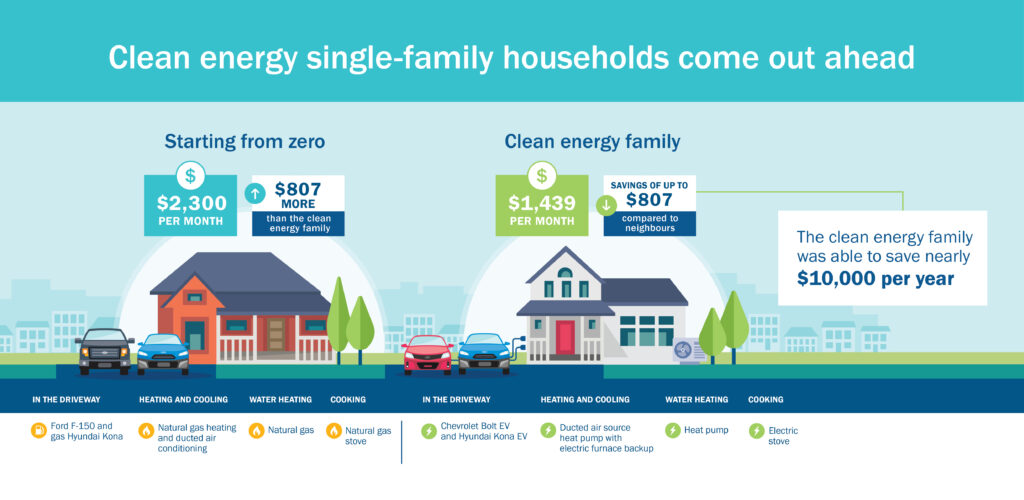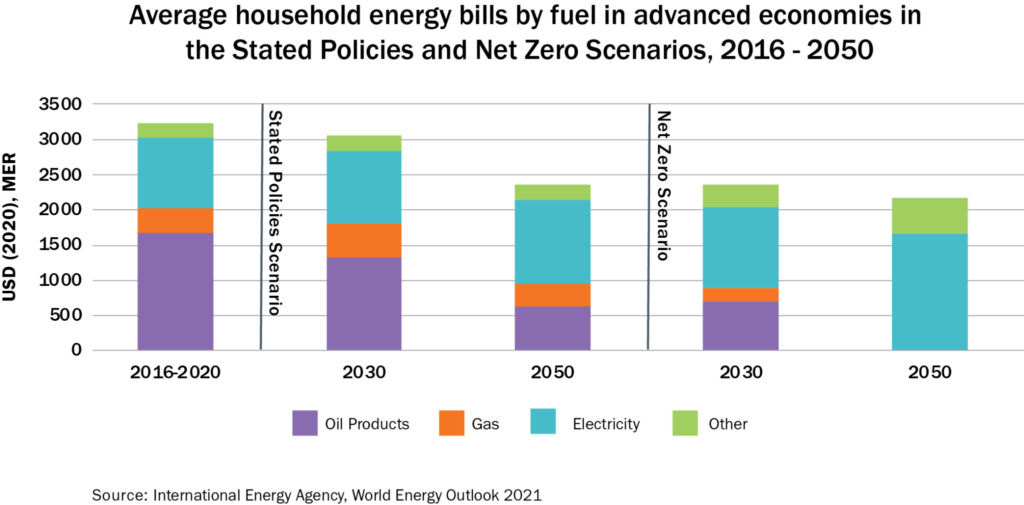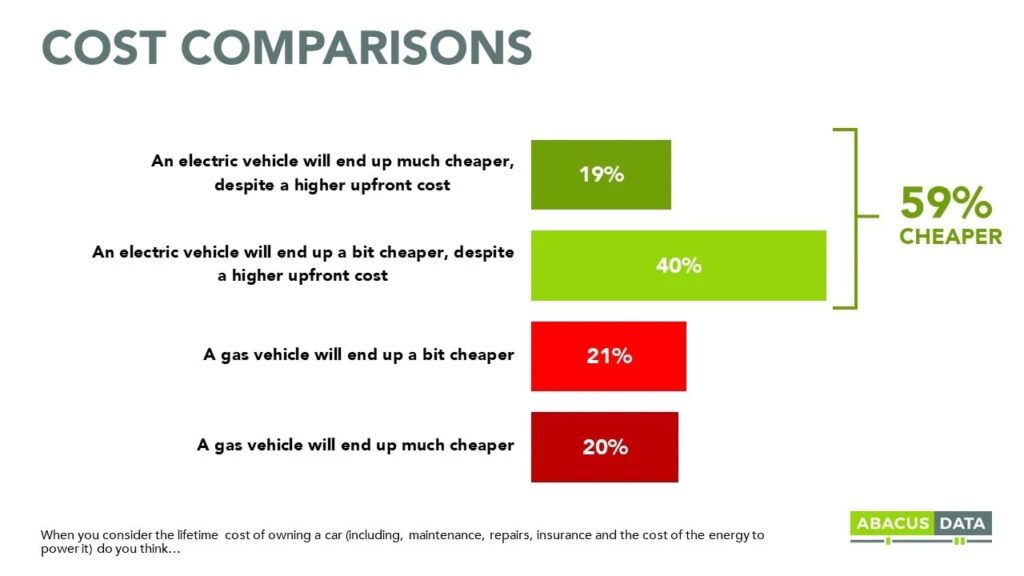The energy transition will make life more affordable, but how do we communicate this to Canadians?
Emerging Leader Trevor Melanson, Communications Director at Clean Energy Canada, outlines research-backed communication strategies for getting Canadians on board the clean energy transition. Spoiler alert: Canadians need to know that clean energy is more affordable, and more secure.
It hardly needs to be pointed out that affordability is the single most salient issue in Canadian politics today. As for climate change, it consistently ranks among the big four concerns that Canadians hold near and dear to their ballot, alongside affordability, the economy, and healthcare.
Of course, climate is linked to each of those.
Indeed, Clean Energy Canada has long made the case that the energy transition is an economic imperative. Our most recent report with Navius Research found that total energy jobs would increase by 700,000 in a net-zero 2050 future, as rapid growth in clean energy jobs outpaces a decline in fossil fuel ones. And last year, we conducted a deeper study alongside the Trillium Network for Advanced Manufacturing exploring the potential for an EV battery supply chain in Canada, finding that it could support 250,000 Canadian jobs by 2030.
But what about affordability—the issue most dominant in our present discourse? How does it square with climate action?

In a study released by Clean Energy Canada in late September (coincidentally, the day before this year’s Clean50), we illustrated these financial benefits for families. At a household level, clean energy upgrades like EVs and heat pumps will save Canadians a lot of money—even when you factor in their upfront costs.
We analyzed three hypothetical Toronto area families, and the one that ditched fossil fuels was able to knock $800 a month off their energy bills. At a time when the cost of living is skyrocketing, that’s $10,000 a year that can be saved, invested, or spent on literally anything else. A condo could similarly save around $5,000 a year.
Both Canadian and international studies have reached the same conclusion: the transition to clean energy will result in smaller energy bills for families.

The challenge, as ever, is largely a communications one. The status quo so often feels cheaper and easier—even when it’s not. And when politicians and pundits talk of “trade offs” between the environment and other political imperatives, like affordability, it leaves the listener with the impression that there will, in fact, be a net cost.
One challenge is that, in isolation, certain costs may indeed go up. Using more electricity (to charge your car, for example) means paying more for electricity, but paying more for electricity is a lot cheaper than paying to fill your car with gasoline.
Helping Canadians put these pieces together into a bigger picture—one where a clean energy lifestyle ultimately saves them money—is key. It’s also somewhat tricky.
Over the past year or so, Clean Energy Canada has commissioned public opinion research to better understand how to effectively build these positive links in people’s minds between the energy transition and improved affordability.
Along with various polls, Clean Energy Canada and Abacus Data conducted a series of Ontario-based surveys and focus groups last summer, given the political importance of Canada’s biggest swing province along with a desire to understand how recent regional EV investments were resonating with residents.
What we found was that while almost everyone we surveyed saw climate action as broadly beneficial, many felt climate efforts were likely to cost them more over the short term—even if such efforts might save them money in the long run.
While there is some truth to this, the return on investment can be very quick—and very big. In Clean Energy Canada’s newly released affordability study, most EVs we looked at broke even in under a year. Some are already cheaper upfront than comparable gas models, depending on provincial rebates. But all EVs cost less within a few years, with savings topping $30,000 over a decade of ownership.
Many Canadians already know this to an extent, but they likely underestimate just how much cheaper an EV will become. In a poll we conducted earlier this year with Abacus, about six in 10 respondents felt that an EV would ultimately cost them less when you consider the lifetime cost of the car, but only one in five believed the savings would be great.
In our Ontario surveys, EVs were widely understood as cheaper to fuel than gas cars, and participants viewed EV rebates (federal and provincial) along with government investments in charging infrastructure as effective ways to improve affordability.

Another highly persuasive argument for participants was around energy security. While oil and gas prices are driven by factors outside our control—geopolitics and the maneuvering of countries like Russia and Saudi Arabia—clean electricity is produced and priced here in Canada.
In short, it is arguments that are tangible or intuitive that will resonate most with Canadians. “If you’re explaining, you’re losing,” as Ronald Reagan liked to say, and on that point, he wasn’t wrong. When highlighting the many benefits of climate action—from economic opportunity to household savings—communicators should remember that old truism.
Writers know another one: “Show, don’t tell.” Sometimes we do need to tell, but showing will always pack that extra punch. Your neighbour showing you their monthly charging costs next to your gas bill. Ontarians seeing the EV manufacturing industry literally rise up around them.
Fortunately, the truth is on our side: clean energy really is more affordable energy. But while the link may occasionally be complex, effective communicators ought to make it simple.

















